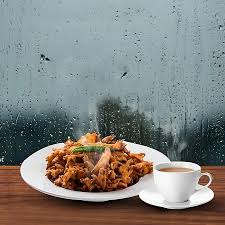Karmic Kitchen!

For me, as someone who has spent over three decades in the hotel industry (in kitchens, managing F&B operations, and leading teams) this understanding has only deepened with time. Through all those years, one thing has become painfully clear; the biggest gap I’ve witnessed in most kitchens is the absence of emotions. In more than 90% of the projects I’ve worked on, this essential human element was missing.
I’ve seen talented individuals working like machines, overburdened, exploited, and denied basic needs like weekly offs or even emergency leave. I’ve witnessed team members cancel weddings, miss family functions, and sacrifice some of the most important moments of their lives, simply because the system didn’t allow otherwise. These are not minor issues. They leave lasting emotional wounds. And yes, they directly impact the food we cook and serve.
Imagine this: it’s closing time in a restaurant. The kitchen team is still pushing, still plating, still cooking, but inside their hearts, they are counting the minutes. “It’s 11:00 PM. When will I leave? Why is the guest still sitting there?” These are not just thoughts, these are emotions, and they flow into the food. When food is prepared with frustration, resentment, or exhaustion, it loses its sanctity. It becomes just another task; a transaction without soul.
This is why I speak about karma, a concept deeply rooted in Indian philosophy, in the context of our profession. Because every action we take in the kitchen carries not just physical consequences, but karmic ones too.
I say this not just as a philosophy, but as a lived truth. I have implemented this understanding in my own kitchens. I teach it to my teams. I try to live it every day. Because when chefs are conscious of their emotions and actions, the kitchen becomes more than a workplace... it becomes a sacred space for transformation, both for those who cook and those who are served.
To understand the Importance of Emotional Intelligence (EQ) in the Kitchen and in a Chef’s Life, let’s begin by understanding what Emotional Quotient (EQ) or Emotional Intelligence really means.
At its core, EQ is the ability to recognize, understand, and manage our own emotions. It’s about being aware of how we feel, why we feel that way, and how those feelings influence our behavior. But it doesn’t stop there. Emotional intelligence also includes the ability to perceive and understand the emotions of others to empathize deeply, to communicate thoughtfully, and to create emotionally enriching connections with those around us.
In the realm of hospitality, where emotions run high and human interactions are at the center of everything, EQ becomes more than just a skill; it becomes a necessity. After all, feeding someone is not just an act of service; it is a sacred offering. Providing food and water to another person has been considered one of the highest forms of virtue across cultures, especially when done with sincerity, humility, and compassion.
In this context, our profession as chefs holds a profound spiritual significance. It directly ties into the law of karma, the universal principle that our actions, whether good or bad, return to us in one form or another. There are three types of karma that define the quality of our actions:
1. Vikarma – These are harmful actions, often born out of negligence, ego, or ill intent. In our kitchens, Vikarma manifests when food is prepared carelessly, with negative emotions or toxic attitudes. Ignoring hygiene, disrespecting ingredients, mistreating colleagues, or compromising a guest’s health in any way are examples of this. Such actions not only degrade the sanctity of our work but also carry deep karmic consequences. In a culture where guests are revered as divine (Atithi Devo Bhava), there can be no greater transgression than disrespecting the food we serve or the people we serve it to.
2. Sukarma – These are good deeds, but they are performed with some form of attachment, be it desire for recognition, financial rewards, or career advancement. Many professionals work diligently, following their duties to the letter. But if the motivation behind their effort is purely material, the impact of their actions becomes limited. While Sukarma may bring short-term success or applause, it rarely leads to inner fulfillment or lasting growth. This is where emotional intelligence plays a crucial role in guiding us to not just align our actions with what is right, but also helps keep our motivation pure.
3. Akarma – These are the highest form of actions: selfless, pure, and done without any expectation of return. When a chef works not just with skill but with a spirit of devotion, love, and genuine care, that’s Akarma in action. Whether they’re plating a fine dish or helping clean a counter that isn’t part of their job description, what matters is the intention behind the deed. True karmic duty transcends roles, hierarchies, or recognition. It is about doing the right thing simply because it needs to be done, wholeheartedly, quietly, and joyfully.
As chefs, we hold the power to rewrite our karmas every single day through the choices we make in our kitchens, the emotions we bring into our cooking, and the energy we transfer into the meals we prepare. Our attitude, our presence, and our intent are all ingredients just as important as salt or spice, and they influence the nourishment our food carries.
In conclusion, why we do something often matters more than what we do. Intentions are powerful & they leave imprints not just in our actions but in the hearts of those we serve. Emotions are energy, and that energy is transmitted through every morsel, every interaction, every smile, and every moment spent in the kitchen.
The kitchen is not just a place where meals are made, it is a sacred space where karma is shaped, where character is revealed, and where every act, big or small, becomes an offering.
When guided by emotional intelligence and a sincere heart, the life of a chef becomes more than a profession; it becomes a path of purpose, presence, and higher service.
A Closing Message from My Heart
As I reflect on these three decades in the hospitality industry, I feel a deep responsibility to share not just what I’ve learned, but what I’ve lived. And today, I want to speak directly to all the stakeholders in our field from hotel owners, restaurateurs, senior management, and investors, to anyone building businesses around food and service.
I urge you to guide and support your kitchen teams. These are the hands, hearts, and souls behind every dish that carries your brand forward. Don’t just build restaurants, rather build environments where your people can thrive. Let them live their lives with the same colors and joy that you seek for yourself.
Yes, we understand that hospitality is demanding. There are sacrifices. There are peak seasons, festivals, and weekends when teams must stretch beyond their limits. But don’t let this become the norm. Don’t let the burden become blind exploitation. Instead, listen to your people. See them. Acknowledge their struggles. Resolve their concerns. Let them feel like humans, and not just resources.
Because no matter how luxurious your décor is, how grand your brand becomes, or how much capital you invest... At the end of the day, it is the energy and emotion of your kitchen team that reaches your guests through the food.
If your team is broken, overworked, and emotionally depleted, your food will carry that energy. And no marketing strategy in the world can cover that up.
So let’s build a culture where empathy and emotional intelligence are as important as SOPs and standards. Let’s bring heart back into hospitality.
Make your people happy, and they will create happiness around them.
This is not just good business, it is good karma.
And in the kitchen, karma is everything.
If your team is broken, overworked, and emotionally depleted, your food will carry that energy. And no marketing strategy in the world can cover that up.
As I reflect on these three decades in the hospitality industry, I feel a deep responsibility to share not just what I’ve learned, but what I’ve lived. And today, I want to speak directly to all the stakeholders in our field from hotel owners, restaurateurs, senior management, and investors, to anyone building businesses around food and service.
I urge you to guide and support your kitchen teams. These are the hands, hearts, and souls behind every dish that carries your brand forward. Don’t just build restaurants, rather build environments where your people can thrive. Let them live their lives with the same colors and joy that you seek for yourself.

.png)













